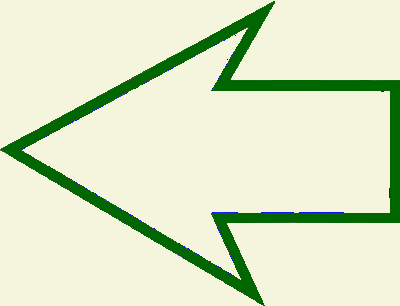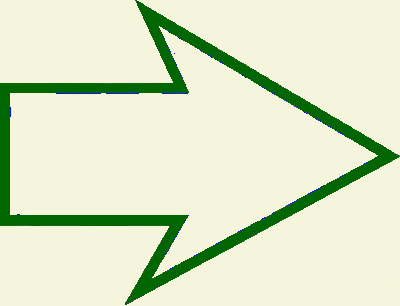 Index
Index 
Language Epistemology
Education: The effect of today's “education” it seems, perhaps even by unconscious design despite loud protestation to the contrary, is to produce amoral robots to carry out routine maintenance procedures on “human-serving” machines. We don’t want creativity except by economic procedure, we want docile obedience instead. Obedience to what? So call it God, some common-human-decency, some America, some Iran, some self, but all demand compliance within rigidly defined procedures. Education is but training in those procedures. Why math? So I can count my change. Why words? So I can read my instructions. Why literature? So we have something to discuss. Our current calls for more education, especially of the young, is just the march toward more rigid regimentation for the common purpose, which is power, or its daughter, money. Review of Varki and White: “Denial”, a book by Ajit Varki expresses recognition of our impending death as basis of our fearful, self-deception. Denial of death a springboard from which all deception arises, follows the pattern in “Delusion”, a book by Curtis White, that science itself is but another binary, citing Derrida, extracting “life”, e.g. joy, beauty, harmony, etc. for “meaning” in life, from knowledge or at least its pursuit. From strictly “materialist” grounds, “humans are neurons” say scientists with pride in the accolades of the almost equally knowledgeable colleagues. “Denial” rightly point out, ISTMRN, that denial of mortality is big in the human psyche (undefined), and is related to other “denial mechanisms” that we human have honed to a fine edge. The “denial” is of reality, undefined except to say it includes our personal death. So there is “reality” and “unreality”, or denial. Varki then assumes that “rational” equates with or is “part of” reality. He claims it is not “rational” to pursue risky behaviors. All behaviors are for “reproductive advantage.” So in Varki’s view, “reality=evolution=rational”. Another binary pair (rational and not rational) add to the trinity to make it complete. He claims mountain climbing, cigarette smoking, and speeding on highways are “irrational”, because they increase the risk of death without reproductive advantage. He mentions tradeoffs with “feelings” such as thrill, but dismisses them as “spirit”, or as he says, “no value other than pure thrill”. That is pattern of Curtis White, “The Science Delusion”. But then Varki takes off on a “scientific” polemic, citing the marijuana issue with which I have some familiarity. He claims liberal’s usual arguments for “extreme” views on the right and some on the left who acquiesce to the right. He intends there is a condition of “clear mind” required for something like driving. So, and here’s the polemic, there is a “need” to regulate human behavior, to “control” behavior to use his word (page 182). What should be the basis of this control? After citing alcohol regulations as a model, he call for control that “requires adherence to standards” based on “the latest research about the detrimental effect on the developing brain. If you are an adult you cannot become a danger to others in the public space.” He continues, “Added benefits to the realistic approach” and a few sentences later, “Medical research could also uncover .... on health”. I leave out specifics to emphasize the plea for money in hopes we readers share or are shamed into agreeing with his priorities, because after all his priorities "are based on rational, evolving reality, not artificial values.” Interestingly he claims to arrive at his political position by taking from both “extremes”, Aristotle’s golden mean. Unfortunately, Varki seems the think his position “realistic” and therefore above politics. | He shares the modern liberal belief in “morality above morality” based on “science” in service to our desire to live “better” and “longer”. Varki also cites the existential angst stemming from our scientific knowledge that we are but a mote in an unfathomable universe, as if modern science discovered this interpretation of reality. However, I prefer science teaching me that I am the center of the universe and the essence of a complete universe myself. All my senses are tuned to “incoming” radiation or its surrogate, force. Here, right in the center of my universe. For Dante the center was immovable. Well, glory be, it’s not. My universe changes with every step along a street; a new perspective on ….. reality? Each breath. Each book. My universe, the “whole” universe as far as I can know, includes galaxies different galaxies than in your universe; it includes God, my love, my thoughts about love ---- well ---- everything I know of, the whole universe. Your’s does too. We seem desperate to know another’s universe, else why read books, talk to someone, or watch a movie; but we can’t. When you say galaxy an image pops into your head. No one else experience that image, it’s only in your universe, as my image is unique to me when I “picture” galaxy in my soul, awareness, consciousness, brain, essence, self, etc. etc. The funny thing is, I don’t “know” what that picture “is”, because it’s always different: sometimes swirling in space, sometimes a mathematical formula, sometimes a memory of a Hubble Photograph or several, sometimes a B&W image conjured from many memories of galaxy pictures, etc. --- the images of “galaxy” are just a tiny facet of my universe. “Table” and “circle” conjure an array of temporarily floating images in my universe (and yours) as do all other words, feelings, thoughts, and actions. That universe of images is all I have. I strongly suspect that when I die, as any living thing I am aware of, then my universe will be gone, never to be reconstituted again to glorify or condemn itself. A comforting metaphor from Mark about a life being a drop of water re-entering the ocean upon death, prompted me to ask him, “Does the drop recognize it’s still a drop when it enters the ocean?” I have not yet heard an answer. I suspect “No”. My universe is my material body. It’s all here! Some, actually a lot, say there is something “else” in human consciousness: “self, soul, gods, God, etc. The very “self” that writes these words”. I’ve been to Missouri, so “Show me!” I’ve been told by Lao Tzu, Dante, a modern coma survivor, and a “proof of heaven” author that “it” is beyond words, but yet they all tried to tell about it with words. I prefer Lao Tzu and Epictetus gentler acceptance of ignorance rather Plato’s and Dante’s activism in helping people “think right.” I don’t know what “right thought” is. I pay homage to science, of course, also to “knowing”, and therein lies one of my vanities. Why do I want to “know”? I don’t know, but I have lots of conjectures. | The world is really “made” of little tiny things we can’t see. Oh, we can see their “effects”, like a table surface or the picture of atoms spelling IBM, but that is only where they have been for most, or where they are for a very few. Show me. Yes, my son, come closer and you may see things are really not “substance” but highly concentrated energy that dissipates outward by the inverse-square law creating a field that interacts with “particles”. I just said particles are where fields concentrate energy. Now to see this is true, nature of nature in all its glory, you must take a few mathematics and physics courses (and chemisty, “don’t forget the king”, Alice heard him repeatedly say in presence of the dominant Red Queen). Wow, seems pretty arduous. How about philosophy, psychology, sociology? "Well, yes of course, if you want, but you still need all that math and science to understand nature and the universe, but, frankly, if you have the time I recommend the new departmental GIS course, much more marketable because of its utility in your profession." But sir, I want to know it all, not some specialty. Son, you don’t understand math and physics is “it all.” OK, is it enjoyable? Immensely, you can gaze into the eye of God and see simplicity, beauty and symmetry. You can understand the flowering of the human mind through Aristotle, Newton, Lavoisier, Rutherford, Plank, and a host of other “saints” of physics, who pointed the way to TRUTH, of which have just seen a glimmer. Hmmm, seems awfully religious to me. More agitated, Again, you don’t understand, science is not religion; science is pursuit of TRUTH, verifiable with observation. Show me. We don’t have to observe a “thing” to know its behavior, we can sense its effects on our instruments. We are circling, but to proceed, “Where is the added excitement and frustration in your demeanor coming from?” To which he retorted, “This conversation is at an end. I don’t think you are right for our department. When confronted with the TRUTH you respond with personal attacks." I left |